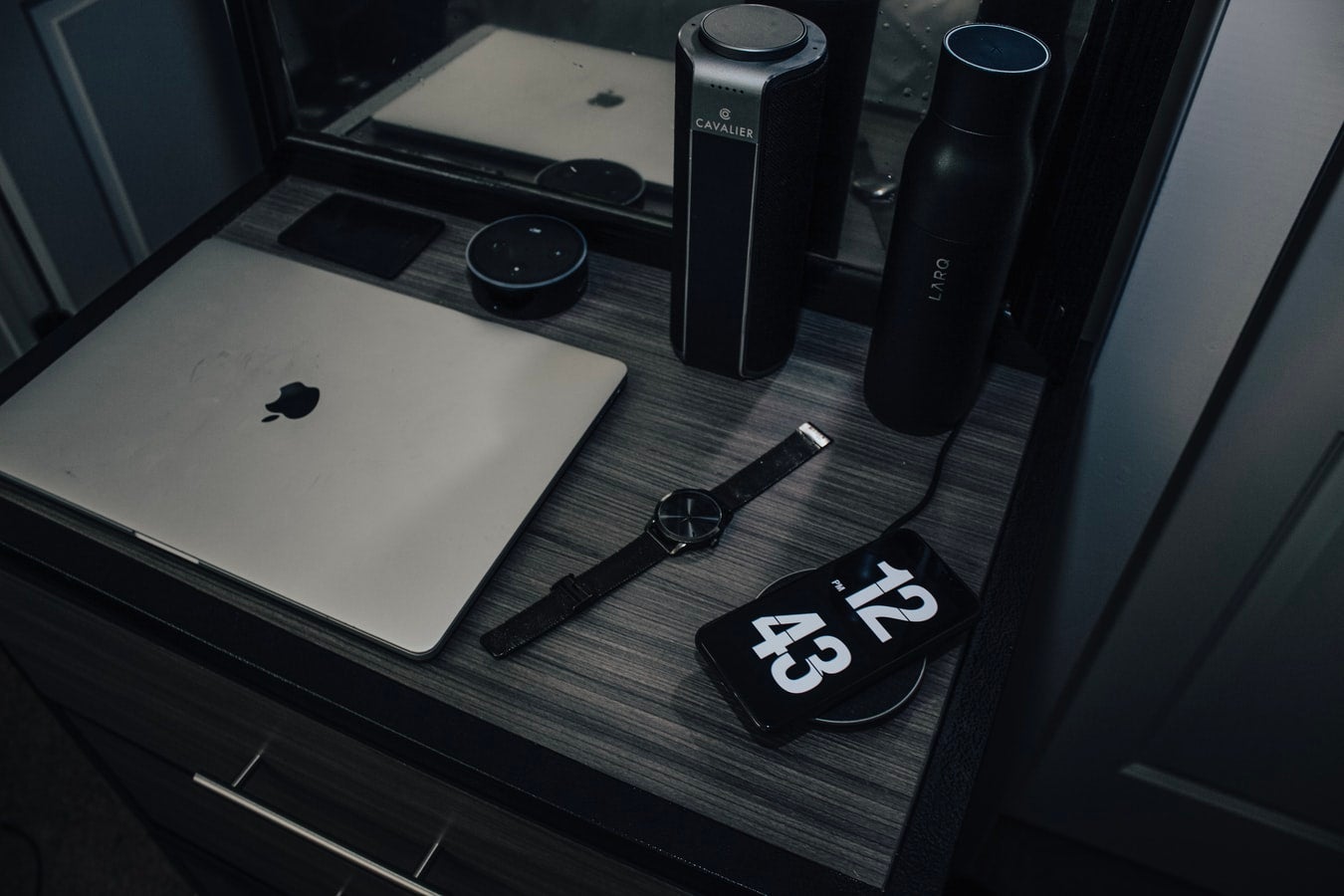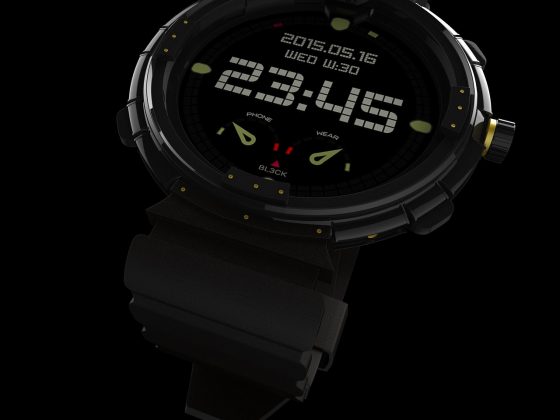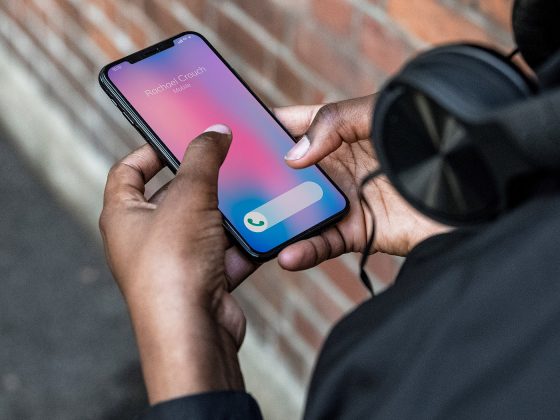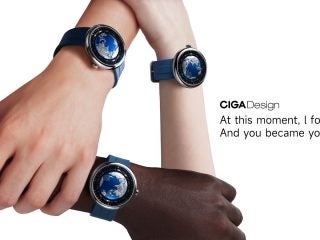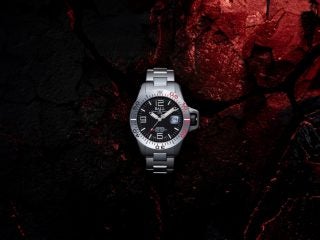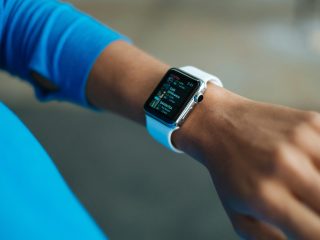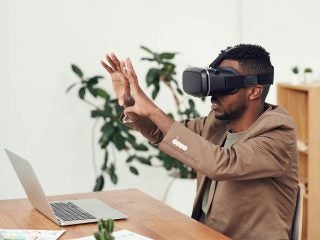Here we review fitness bands and smartwatches with a smart alarm clock and heart rate monitor that help us improve our sleep. But before we get to the list of devices, let’s find out what a smart alarm clock is, its functions, and how it affects our sleep phases, the way they affect our awakening and our overall condition throughout the day.
Fitness band with a smart alarm clock. Why use it?
The concept of “alarm clock” is something we all know well – to wake up, we need to be awakened. But the problem with traditional alarm clocks is that their sudden signal “pulls us out of our sleep” regardless of where we are in it.
When awakening occurs during the “wrong” phase of the sleep cycle, e.g. in the middle of deep sleep (non-REM sleep), our natural rhythm is disturbed, giving us a feeling of fatigue, fragility, and dissatisfaction.
According to this article about smart alarm clocks at thehomedweller.com, the evolution of new technologies has led to better ways of waking up which should make us feel less frustrated in the morning and more energetic during the day. There are gadgets in the wearable device market such as fitness wristbands, smart bracelets or smartwatches with a pre-set smart alarm clock. Many of them have a sleep quality tracking feature.
A smart alarm clock with sleep phases is designed to make waking up easier and at the most appropriate time.
How a sleep tracker helps improve our sleep
Many of the wearable devices have a built-in heart rate monitor. It uses an intelligent alarm clock to track our heart rate and determine which sleep phase the owner is in.
Also, any of the devices contains a motion sensor to detect the movement or resting of the body, thereby analyzing the status of the person: awake or asleep. In addition, the devices can offer a three-range sensor that measures Sp02, allowing you to track the oxygen in the blood, and eventually, monitor abnormalities such as apnea.
Every time your sleep wristband determines the right wake-up time, a smart alarm clock can wake you up even a little earlier than you planned in the morning, but it will be the moment when your body is ready for it.
In addition, by observing your smartphone’s sleep tracking apps, you will be able to analyze its quality and, perhaps, draw some conclusions, e.g. go to bed earlier or consider the reason why you may be awake at night (e.g. coffee, physical activity, etc.).
Another advantage of smart alarm clocks is their gradually increasing signal or its absence which is compensated by vibrations of the device. In this case, an alarm band will not disturb a person sleeping beside.
Thus, a fitness tracker with a heart rate monitor and a smart alarm clock on your wrist can help improve the quality of your sleep.
How a fitness bracelet defines sleep phases?
Before we understand how the smart alarm function works, let’s find out which phases a person goes through when sleeping.
The first stage of the cycle is a “slow” sleep, accompanied by a mild and deep sleep. The second is a rapid sleep phase (REM, Rapid Eye Movement).
If it is relatively easy to wake up in a state of shallow sleep (falling asleep), it is quite difficult to wake a person up during non-REM (deep) sleep: this is the time when dreams come of which the sleeper, in most cases, does not remember. “Slow” sleep covers 75-80% of the whole cycle, when a rapid sleep comes episodically throughout the night, making up 20-25% of the total time of night’s rest. It is in REM sleep that a person wakes up easily and clearly remembers his vivid dreams.
Thus, a REM phase comes after a shallow and deep sleep, 70-90 minutes later and lasts 5-10 minutes, but with each cycle, a REM sleep phase increases and in the morning can reach up to 20-60 minutes, at the same time becoming more and more superficial. This period is considered similar to wakefulness. That’s why this is the best state to wake up a person in the morning.
It is worth noting that fitness bands or smartwatches with a heart rate monitor can more accurately detect your state because even during rapid sleep, a sleeper remains in complete stillness.
When you set a scheduled wake-up time (e.g. 7:30 – 8:00 am), the smart alarm clock will work if the device on the user’s hand determines increased physical activity (change of body position) or increased heart rate. But if this is not the case, the alarm will go off at the last time point in the time period (8:00 am in this case).
Sleep tracking apps
Sleep quality is monitored not only by trackers, but also by programs that collect statistics for the whole night and, using accelerometer data (motion sensor in the worn gadget), have the ability to provide the user with not only info but even make analysis and plans to improve rest.
With an app installed on your smartphone, you can set the wake-up time and signal type in a smart alarm clock. Some apps have the ability to record night sounds, such as snoring, talking or rustling, to see if a person is sleeping or not.
The software allows users to view graphs of trends which include the total sleep time, its length, duration, and wake-up time.
You can install apps both for iPhone and Android. iOS and Android apps are available in the App Store and Google Play for free. But some of them may require a fee for a full/premium version with extra features.
Here’s a list of some of the best apps:
- Sleep Time (iOS and Android);
- Sleep as Android (Android only);
- Sleep Bot (Android only);
- Sleep Cycle Alarm Clock (iOS only);
- MotionX-24/7 (iOS only);
- Sleepmaster (Windows Phone).
Best fitness bands to track sleep in 2019
Nowadays, there are a lot of smart wristbands and smartwatches in specialized stores which can be used to track not only active lifestyle and achievements in sports but also sleep – almost every sports tracker contains a motion sensor or an accelerometer for motion detecting. The principle is simple: mobility is awake, and lack of it is sleep. Most wearables are based on this principle.
Of course, the built-in heart rate monitor is the key to a more accurate determination of the user’s state based on the detection of changes in heart rate and a deep understanding of the different phases of sleep.
Next we have the top 5 fitness wristbands and smartwatches models that offer quality sleep monitoring, whether with an optional smart alarm app or their built-in technologies.
Fitbit
Fitness trackers of this company are famous all over the world not only for monitoring its users’ activities but also their sleep quality. The Fitbit Charge HR, Fitbit Alta HR and Fitbit Blaze models which continuously monitor the variability of heart rate along with heartbeat are particularly worth paying attention.
The devices use the heart rate and movement data collected the previous night to evaluate sleep cycles with the metrics the following morning. Thus, the tracker compares and analyzes past and present results for complete information on the quality of your sleep.
Although Fitbit does not claim to recognize the phases of sleep, the devices detect how sensitive or fast the user is asleep.
Misfit
The Misfit Shine 2 is a waterproof fitness tracker, designed to be as active as most sports wristbands. However, the gadget offers a fairly good option to track sleep.
One of the reasons for its popularity is the low price (compared to Fitbit products). Along with this, Shine 2 distinguishes between easy and deep sleep, provides a total sleep range, and also allows you to set a smart alarm clock to help you have a good rest.
Xiaomi
Mi Band 2 and Mi Band 3 define the sleep phases because they have heart rate monitors. In this case, the tracking quality will be more precise. Users’ feedback was that the Mi Band model, not having a heart rate monitor, also provides a similar function, determining the readiness of the owners to sleep/wake up and their REM/non-REM sleep.
There is no smart alarm function in the trackers but, using third-party apps on your smartphone, you can synchronize data and make certain conclusions regarding your state at night.
Xiaomi bands are popular among users because of their low price compared to other similar devices on the market. Although, of course, you can find other budget options from China, such as MGCOOL Band 4 – an affordable analogue of Xiaomi Mi Band 2 which comes with a heart rate monitor.
Pebble
Both the original Pebble and Pebble Time (as well as their other models) have built-in vibration alarms. Vibration is the only non-visual way Pebble can interact with. When setting an alarm clock, the smartwatch will tremble strongly on your wrist to wake you up at the time set.
Despite the fact that there is no personal smart alarm clock in Pebble, the band works great as a tool for optimizing sleep thanks to the integration of popular apps, such as Sleep as Android.
By default, Pebble does not have sleep quality tracking options, so you can use third-party companion apps that provide detailed graphs and the necessary data.
Jawbone
Various Jawbone fitness trackers that support vibration-based alarm signals included Up, UP24, and UP3 models.
While FitBit uses silent signals (vibration) as a “silent alarm” function, Jawbone called this function a “smart alarm clock”, but the principle was the same. The smartwatch could wake you up without disturbing your “neighbor” in bed or room.
The Jawbone tracker picked the best possible time to wake you up, given the phases of your sleep, as it had a built-in smart alarm clock.
You probably wonder why past tense? Well, unfortunately, these cool trackers are no longer available as the company went bankrupt and stopped supporting its customers and apps. Sad story, but I thought you should know this.
How to choose a fitness band with a smart alarm clock
The main criteria when choosing a sleep tracker are the following:
Design. Pay attention that the chosen device fits your wrist perfectly – not too tight, not too loose. The gadget should not be heavy and bulky, as this may affect the quality of your sleep. The display is not the most important factor in the sleep tracker design because in most cases you will use an app on your smartphone to view graphics and other information collected by the device overnight.
Features. Sleep tracking is a feature that is inherent in almost every fitness bracelet or smartwatch. Therefore, pay attention to the features provided by a wearable device and think about what you really need, e.g. a pedometer, calorie counter, and a sleep tracker. The more functions, the more expensive and, most likely, the more massive the device.
Compatibility. Not all smartwatches and bands can fit your smartphone. It is worth paying attention to whether the device works in tandem with the platform of your phone (unless, of course, it provides the smart alarm function regardless of the phone model). Typically, the developers and manufacturers are trying to provide support for both iOS and Android platforms.
Protection. Moisture, sweat, and dust are a serious threat to the device that is constantly in use: on the skin, under clothing, or in bed. Therefore, it should have a water and dust protection indicator. To understand special values, see IP/ATM mapping.
Battery. It is always better to invest in a product where the battery life will be more than 2 days, especially if you forget to charge gadgets.
Price. “Expensive” does not mean “it’s what you need.” A high price may indicate not only its reliability but also all kinds of additional features. These may include:
- Automatic tracking of a whole range of sports
- Multisport mode
- Swim fitness
- Increased durability and shock-resistance
- GPS / GLONASS, Wi-Fi
- Long battery life
- Third-party sensors support (for sports)
- Color display
- Heart rate monitor
- Additional accessories, features, and various sensors (compass, pedometer, barometer, altimeter, thermometer, etc.)
Perhaps, you do not need most of the above options, so choose the device wisely according to your needs and preferences.
Conclusion
A smart alarm clock in a fitness bracelet or smartwatch is not paranoia, but a very convenient function which helps you wake up on time without disrupting your rhythm, thereby, ensuring your mental health.
Some wearable devices provide useful add-ons such as vibration reminders for sleep time, depending on your sleep schedule. Modern technologies make it possible for users to identify factors affecting sleep and, thus, take the necessary measures to improve it.
It is worth keeping in mind that no alarm clock or device can clearly balance your regime. The main thing is to have enough rest at night and avoid overdoing during the day.
What are some easy wake ups that you know? Do you agree that a smart alarm clock can fix a bad feeling in the morning? Please, leave your comments!




